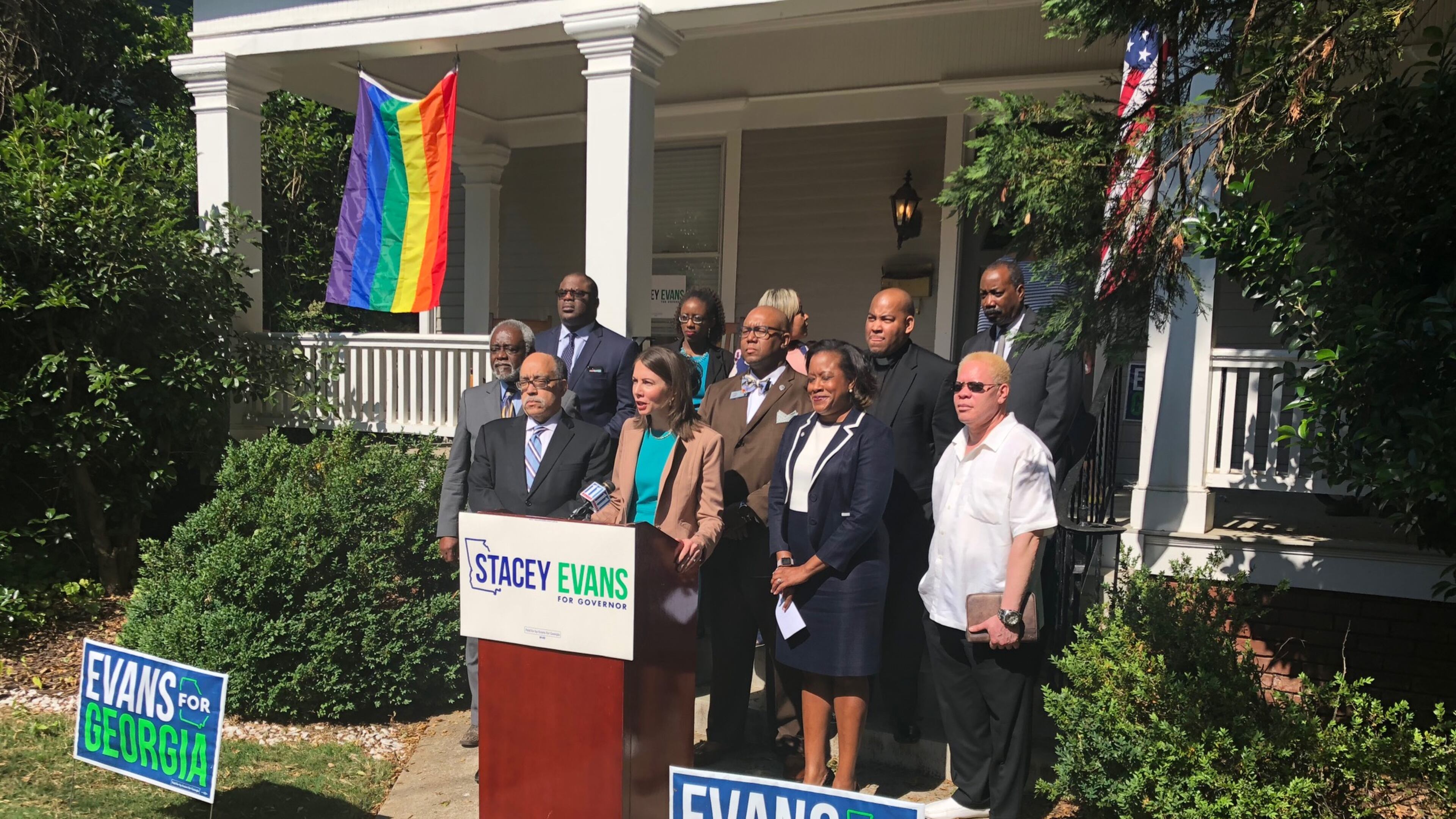Georgia 2018: Evans bets on gambling as new divide in gov race

Trailing in the polls three weeks before the race, Democrat Stacey Evans tried to raise the stakes Monday by emphasizing her support for casino gambling to help reverse cuts to the HOPE scholarship.
The former state legislator criticized her opponent, ex-House Minority Leader Stacey Abrams, for not sponsoring a bipartisan effort that would allow casino gambling and use some of the proceeds to boost the popular lottery-funded scholarship.
“My opponent declined to sign casino legislation that would have given students needs-based aid,” said Evans, who was flanked by prominent African-American supporters outside her campaign office. “I am the candidate who will consistently stand up for needs-based aid.”
Evans is referring to a years-long debate over legislation that would allow several gambling “destination resorts” in Georgia. The measures faced stiff opposition from Republicans – both Gov. Nathan Deal and House Speaker David Ralston objected to the idea – and never gained traction.
Abrams was not a sponsor of the 2017 proposal that would clear the way for casino gambling, but as the House's top Democrat she said her party would only back gambling measures if Republicans agreed to use the new revenues to add a needs-based program for HOPE.
On the campaign trail, Abrams doesn’t highlight casino gambling. Instead, she argues that more efficient sales tax collection, eliminating some tax breaks and ending a tax credit program for private school scholarships will raise enough new funds to expand HOPE.
The debate over HOPE has long been a key divide in the May 22 primary, but Monday was the first time the two candidates have clashed over gambling. An Atlanta Journal-Constitution/Channel 2 poll showed Abrams with a two-to-one advantage over Evans - but with more than half of likely Democratic primary voters undecided.
‘Retro’
Some lawmakers have long eyed gambling as a new source of revenue for the college scholarship program, whose awards were slashed in 2011 in a Republican-led effort framed as a cost-cutting maneuver to keep the program solvent.
Evans has centered her campaign on a pledge to reverse the cuts – and has cast Abrams as a collaborator who worked with Republicans to slash the program. She said Monday if she was the House’s top Democrat in 2011, she would have allied with Senate Democrats who opposed the changes.
Abrams said her work at the negotiating table helped prevent even deeper cuts to the program and blocked a test-scoring requirement. Abrams' campaign earlier released a trove of emails in an attempt to show Evans and Abrams worked together on the HOPE overhaul.
And on Monday, her spokeswoman Priyanka Mantha said Evans’ “retro campaign to ‘bring back HOPE’ forgets that too many Georgia kids are excluded from access to higher education because they haven’t earned a ‘B’ like she did.”
In a twist, Gov. Nathan Deal’s chief of staff Chris Riley also joined the back-and-forth Monday. He said in a tweet that Abrams and Evans “both worked separately with Gov. Deal and the Republican majority.”
“I guess in the Democrat primary for governor, the facts are like power ball lotter ticket winners!” he wrote.
The latest version of the measure would have funneled 70 percent of gambling tax proceeds toward HOPE, which pays much of in-state tuition for students with a “B” average. The other 30 percent would go toward a new needs-based scholarship – a plan Democratic leaders have long insisted upon.
Though several influential Republicans backed the plan to legalize gambling in the Legislature, casino supporters face a wall of opposition at the top of the GOP ticket. All five of leading GOP contenders for governor oppose casino gambling, with some saying it would spur more crime and hurt vulnerable citizens.
AJC polls consistently show a wide majority of Georgia voters back casino gambling if the proceeds help fund the HOPE scholarship.
Evans said that former Gov. Zell Miller faced the same sort of pushback in the 1990s when he first pitched the idea of the HOPE program that would eventually become his legacy.
“The same talking points they’re using now are the same talking points they used about a state-run lottery,” she said.

